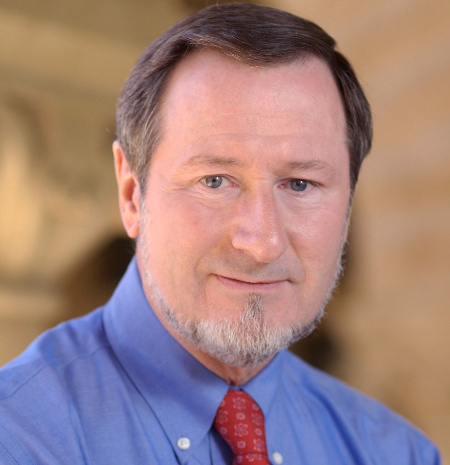Nobel Prize winner of Physics to Vietnam
Doing science must be passionate and nurture it, which is the advice of Professor Douglas D. Osheroff, a scientist who won the Nobel Prize in 1996, during his two-day visit to Vietnam.
Professor Osheroff, Stanford University, USA came to Hanoi yesterday to attend the 4th series of "Bridges - the dialogue towards peace culture" in Southeast Asia. This afternoon he had a talk on the topic "How does science change our lives" with students from Hanoi National University.
Mr. Osheroff shared that his life changed after winning the Nobel Prize. It was a turning point in his life, not only in the field of science, but also in many other respects, especially when he met many people and had many new perspectives.
Talking about the science of countries around the world, Professor Osheroff said, the level of science in different countries. He demonstrated, at the university where he worked, a laboratory with equipment of great value, while in Brazil, the conditions of the scientists' experiments were extremely inadequate.

Professor Douglas D. Osheroff.
Meeting with students from Hanoi National University this afternoon, in front of the question of a content student in Vietnam, the trend of applied science research is dominant compared to basic science, while I study I like this field, Professor Osheroff advises: "Please follow the science you are passionate about, despite winning the Nobel Prize in Physics, in fact I don't have many research funds because I'm doing science. Basically, but not because of that, I stopped my scientific research path because I like it. "
"Doing science must have passion and nurture it , " he said.
"I used to do a science experiment when I was only 6-8 years old, my father always encouraged and encouraged me to do science, that interest made me passionate about science from my baby," Osheroff added.
For Vietnamese science to develop, the professor of Nobel Prize for Physics in 1996 said that Vietnam needs to have policies to encourage students and students to get scientific research as a destination and passion."This is not just a tool for later going out to make money, but also finding something in science," he said.
He said that the best method for Vietnam to possess many scientific talents, right now Vietnam needs a technology exchange plan with developed countries."The government needs to send capable people, excellent graduates to countries to exchange skills, because science in those countries is very developed," Osheroff said.
With this action, Vietnamese students will have the opportunity to learn more experiences from other countries and vice versa. However, to prevent students from going abroad and not returning home, Professor Osheroff proposed, Vietnam needs coordination with other countries to ensure mutual benefits.
Professor Osheroff is the third scientist to visit Vietnam within a month, after two visits by Professor Roger B. Myerson, winning the Nobel Prize in economics and Professor Harald zur Hausen winning the Nobel Prize for Medicine.
He won the 1996 Nobel Prize in Physics with the discovery of Helium's superfluid 3. This study is considered a breakthrough of low temperature physics. During the study, Professor Osheroff developed the early form of a one-way resonance imaging technique.
- Video: What did the first Nobel Prize winner invent?
- Interesting numbers about the Nobel Prize
- Why are Nobel Prize recipients getting older?
- Two scientists won the Nobel Prize to Vietnam
- Nobel history and things to know
- Gravitational wave discovery work won the 2017 Nobel Prize in Physics
- The Nobel Prize winner in physics went to jail
- Two American scientists won the 2006 Nobel Prize in Physics
- The Nobel Prize is not in the Nobel's 'vision'
- Three light experts won the Nobel Prize in Physics
- The invention of laser won the Nobel Prize in Physics 2018
- The 2017 Nobel Prize for Literature will announce the winner on October 5
 Vietnam 5th Asian champion on fuel-efficient vehicles
Vietnam 5th Asian champion on fuel-efficient vehicles We can read all NASA studies completely free of charge
We can read all NASA studies completely free of charge Singer and songwriter Bob Dylan won the 2016 Nobel Prize for Literature
Singer and songwriter Bob Dylan won the 2016 Nobel Prize for Literature Scientific revolution in Asia
Scientific revolution in Asia